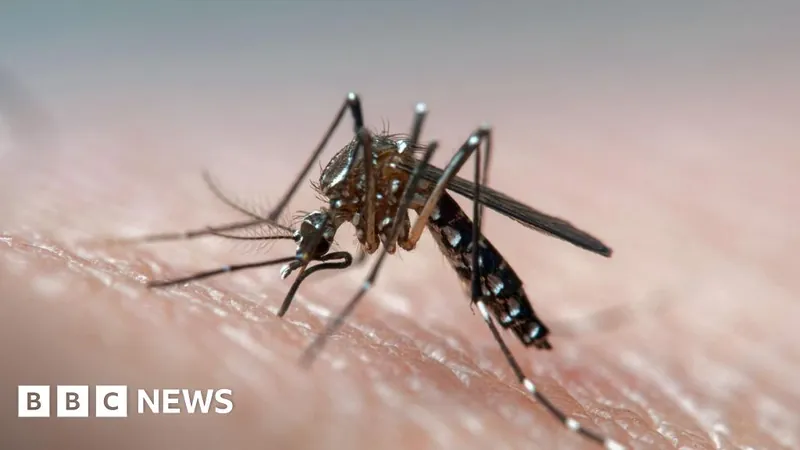
Shocking Study Reveals Ultra-Processed Foods Speed Up Biological Aging!
2024-11-05
Author: Li
A groundbreaking study from the Research Unit of Epidemiology and Prevention at IRCCS Neuromed in Pozzilli, in partnership with the University LUM of Casamassima, has found a troubling connection between ultra-processed food consumption and accelerated biological aging.
This revelation, published in the highly respected American Journal of Clinical Nutrition, challenges existing dietary norms and raises concerns about our everyday food choices.
Study Overview
Involving over 22,000 participants from the extensive Moli-sani Project, the research utilized over thirty different blood biomarkers to accurately assess biological age – a metric reflecting the true state of health across various organs and systems, unlike chronological age which merely counts the years since birth.
Methodology
Researchers employed a comprehensive food questionnaire to measure the intake of ultra-processed foods (UPF). These are items made partially or entirely from substances not typically used in home cooking — think hydrolyzed proteins, hydrogenated fats, and a cocktail of additives like sweeteners, colorants, and preservatives.
Many unsuspecting foods fall under this category, including common snacks, sugary drinks, ready-made meals, and even what we often consider healthy options like industrial bread and certain breakfast cereals.
Key Findings
The alarming finding? Higher consumption of these ultra-processed foods correlates with significant biological aging, meaning participants could be biologically older than their actual age.
This “internal clock” indicates a faster ticking rate for those indulging heavily in UPFs, suggesting a pressing need for dietary reassessment.
Expert Opinions
Dr. Simona Esposito, the leading researcher of the study, emphasized, “Our findings reveal that consuming ultra-processed foods negatively affects overall health and accelerates aging itself, pointing to an unsettling connection that extends beyond mere nutritional quality.”
Further insight came from Dr. Marialaura Bonaccio, who explained that while the precise mechanisms remain unclear, the nutritional inadequacy and industrial processes involved in UPF manufacturing appear to strip away vital nutrients and fiber.
This deterioration can severely affect several physiological functions, including glucose metabolism and the health of our intestinal microbiota. Moreover, many of these products are packaged in plastics, which can leach harmful substances into our food.
Call to Action
With these revelations, Dr. Licia Iacoviello, director of the Epidemiology and Prevention Research Unit at IRCCS Neuromed, insisted it is time to rethink dietary recommendations.
“We must keep in mind that even foods marketed as 'healthy' could have undergone processes that compromise their integrity,” she cautioned.
Conclusion
This study serves as a wake-up call for consumers and nutritionists alike.
As we navigate an increasingly industrialized food landscape, recognizing the hidden pitfalls of ultra-processed foods is crucial for maintaining longevity and overall health.
It's time to scrutinize our eating habits and perhaps opt for whole, less-processed options for the sake of our biological clocks! Before you reach for that next snack, ask yourself: is it worth the cost to your health?


 Brasil (PT)
Brasil (PT)
 Canada (EN)
Canada (EN)
 Chile (ES)
Chile (ES)
 España (ES)
España (ES)
 France (FR)
France (FR)
 Hong Kong (EN)
Hong Kong (EN)
 Italia (IT)
Italia (IT)
 日本 (JA)
日本 (JA)
 Magyarország (HU)
Magyarország (HU)
 Norge (NO)
Norge (NO)
 Polska (PL)
Polska (PL)
 Schweiz (DE)
Schweiz (DE)
 Singapore (EN)
Singapore (EN)
 Sverige (SV)
Sverige (SV)
 Suomi (FI)
Suomi (FI)
 Türkiye (TR)
Türkiye (TR)